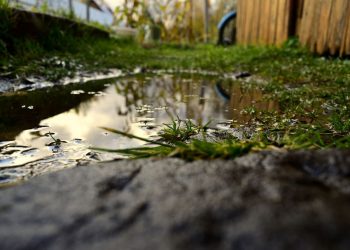Homeowners insurance policies cover damage caused by some factors, or perils, but exclude damage caused by others. When insurance companies evaluate claims and decide whether to approve or deny them, the issue of causation is key. This is a frequent source of contention between insurance companies and policyholders and sometimes leads to legal fights.
Where Issues Arise
In many cases, especially those involving major damage, multiple perils are at play, which makes it difficult or impossible to figure out how much each factor contributed to the overall damage. Often one factor creates initial damage that then allows the other to create even more damage. For example, in a hurricane, wind (a covered peril) can damage a roof, which can then allow rain to enter and flood a house (an excluded peril).
How Insurance Companies Handle Damage Caused by Multiple Perils
According to the doctrine of concurrent causation, if two perils, such as wind and water, both cause damage to a property, and if one is covered and the other is excluded, the insurance policy will pay for repairs. Under the efficient proximate cause doctrine, a claim is only paid if a covered peril is primarily responsible for the loss.
In the 1980s, in response to court cases and in an effort to limit their costs, insurance companies began to include anti-concurrent causation clauses in homeowners insurance policies. According to those clauses, a loss caused by two perils, one covered and one excluded, will not be covered. It doesn’t matter if the two perils occurred at the exact same time or if one preceded the other.
What Options Do Homeowners Have?
A number of homeowners have sued their insurance companies after their claims were denied based on anti-concurrent causation clauses. The results varied based on state laws and the interpretations of state and federal courts.
If damage can be categorized as two separate losses, one caused by a covered peril and the other caused by an excluded peril, an anti-concurrent causation clause will not apply. In that case, repairs for damage caused by the covered peril will be paid and repairs to address damage caused by an excluded peril will not be covered.
Understand Your Coverage and Rights
Many homeowners don’t take the time to read their insurance policies and are shocked when a claim is denied. If you haven’t read through your homeowners insurance policy, you should. If you’re currently shopping for homeowners insurance, ask questions and make sure you understand what you’re buying.











